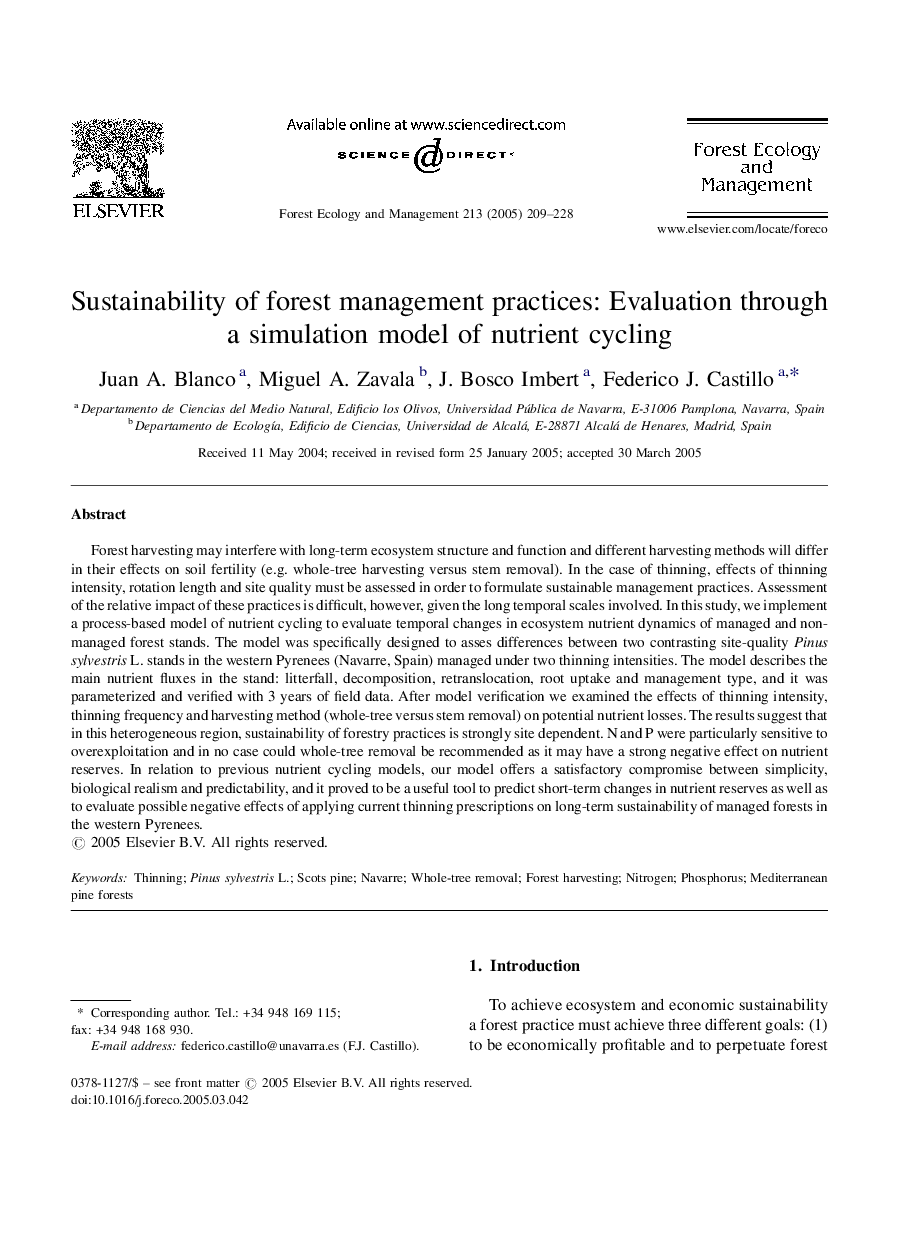| Article ID | Journal | Published Year | Pages | File Type |
|---|---|---|---|---|
| 9620275 | Forest Ecology and Management | 2005 | 20 Pages |
Abstract
Forest harvesting may interfere with long-term ecosystem structure and function and different harvesting methods will differ in their effects on soil fertility (e.g. whole-tree harvesting versus stem removal). In the case of thinning, effects of thinning intensity, rotation length and site quality must be assessed in order to formulate sustainable management practices. Assessment of the relative impact of these practices is difficult, however, given the long temporal scales involved. In this study, we implement a process-based model of nutrient cycling to evaluate temporal changes in ecosystem nutrient dynamics of managed and non-managed forest stands. The model was specifically designed to asses differences between two contrasting site-quality Pinus sylvestris L. stands in the western Pyrenees (Navarre, Spain) managed under two thinning intensities. The model describes the main nutrient fluxes in the stand: litterfall, decomposition, retranslocation, root uptake and management type, and it was parameterized and verified with 3 years of field data. After model verification we examined the effects of thinning intensity, thinning frequency and harvesting method (whole-tree versus stem removal) on potential nutrient losses. The results suggest that in this heterogeneous region, sustainability of forestry practices is strongly site dependent. N and P were particularly sensitive to overexploitation and in no case could whole-tree removal be recommended as it may have a strong negative effect on nutrient reserves. In relation to previous nutrient cycling models, our model offers a satisfactory compromise between simplicity, biological realism and predictability, and it proved to be a useful tool to predict short-term changes in nutrient reserves as well as to evaluate possible negative effects of applying current thinning prescriptions on long-term sustainability of managed forests in the western Pyrenees.
Keywords
Related Topics
Life Sciences
Agricultural and Biological Sciences
Ecology, Evolution, Behavior and Systematics
Authors
Juan A. Blanco, Miguel A. Zavala, J. Bosco Imbert, Federico J. Castillo,
